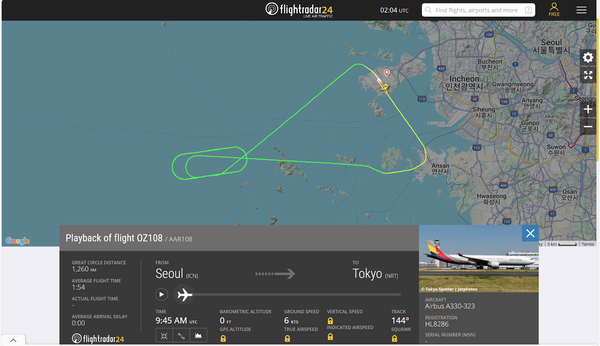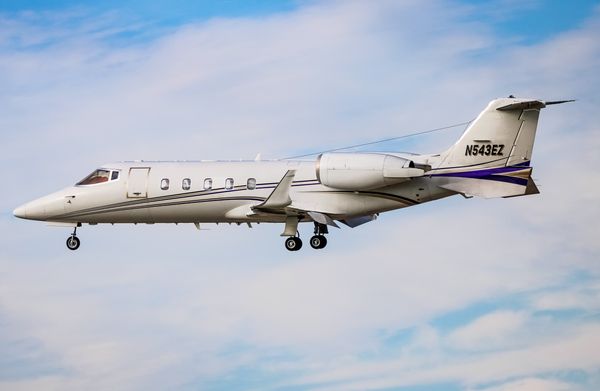Are you dreaming of soaring through the skies as a pilot or delving into the intricacies of aviation management? Pursuing a degree in aviation is an exciting journey that requires a combination of academic knowledge, technical skills, and personal attributes. To help you prepare for success in aviation university, here are some essential skills that aspiring students should cultivate.

1. Strong Mathematics and Physics Skills
Before embarking on your aviation journey, having a solid foundation in mathematics and physics is crucial. From calculating aircraft performance to understanding the principles of aerodynamics, mathematical and physical concepts form the backbone of aviation studies. Brush up on algebra, trigonometry, and calculus, and familiarize yourself with Newton's laws of motion and fluid dynamics principles. These skills will be invaluable as you tackle coursework and navigate the complexities of aviation.
2. Attention to Detail
In the aviation industry, attention to detail is critical for ensuring safety and efficiency in all operations. Whether you're conducting pre-flight checks, analyzing flight data, or overseeing maintenance procedures, precision and accuracy are paramount.
Cultivating a Keen Eye for Detail
For those aiming to carve out an aviation career, honing an acute awareness of detail is essential. This skill is cultivated not only through practical training but also in academic pursuits, including essay writing. If laying your thoughts out cohesively in an essay proves challenging, there is a reliable essay writing service to assist. With their support, you will know how to craft well-researched, thoughtfully structured essays. It’ll sharpen your ability to notice and articulate nuances, a skill directly transferable to the meticulous nature of aviation tasks.
Meeting High Standards of Safety and Efficiency
A strong focus on detail equips future aviation professionals to meet the industry’s stringent safety protocols and efficiency benchmarks. In an environment where every minor oversight can have significant consequences, the ability to scrutinize every aspect of one’s work is invaluable.
Preparing for Success in Aviation
By embracing precision and accuracy as foundational values, aspiring professionals are better prepared to tackle the complexities of the aviation world. This disciplined approach to detail ensures the smooth operation of daily tasks. It paves the way for a thriving career in aviation, characterized by successful, safe flights and a commitment to excellence.

3. Effective Communication Skills
In the aviation sector, seamless communication is crucial for maintaining safety and efficiency, relying on teamwork and the precise coordination of crew members. As such, those aiming to excel in aviation should focus on refining their communication abilities, including:
- Active Listening: Attentively absorbing information shared by colleagues.
- Clear Verbal Communication: Articulating thoughts straightforwardly and briefly.
- Effective Writing: Producing clear, professional documentation. Professional writing services can assist you with that task. It may be challenging to choose the right platform, so read the UK writings review and make an informed decision.
- Knowledge of Aviation Jargon: Grasping aviation's specific language and protocols, like radio communication and standard phraseology.
Mastering these skills fosters confident interactions with team members, air traffic control, and passengers, reinforcing a safety and professionalism culture in aviation.
4. Critical Thinking and Problem-Solving Abilities
In the swiftly evolving and intricate realm of aviation, professionals often encounter unforeseen challenges and complex situations that demand immediate attention. Developing and honing critical thinking and problem-solving skills is crucial for students aspiring to thrive in this environment. These capabilities are indispensable for dissecting intricate problems, crafting strategic solutions, and making well-informed decisions under the pressure of time-sensitive scenarios.
To cultivate these essential skills, students should immerse themselves in activities designed to bolster analytical thinking. It includes engaging in:
- Puzzles and brain teasers that challenge logical reasoning and cognitive flexibility.
- Flight simulations that replicate real-world aviation scenarios require quick and effective decision-making.
- Case studies of historical aviation incidents provide insights into problem-solving under extreme conditions.
- Group discussions that encourage diverse perspectives and collaborative problem-solving approaches.
- Research projects that delve into current aviation industry challenges foster a deep understanding of complex issues.
Developing a systematic approach to problem-solving is also vital. It involves breaking down each problem into smaller, more manageable components, systematically evaluating potential solutions, and considering the consequences of each decision. By consistently practicing these strategies, students will significantly enhance their ability to navigate the complexities of aviation operations. Moreover, they will position themselves as valuable contributors to innovative solutions and advancements within the industry, ensuring safety, efficiency, and progress in aviation.
5. Resilience and Adaptability
In the dynamic world of aviation, resilience and adaptability are crucial traits for navigating challenges and changes. To thrive in this ever-evolving field, aspiring aviation professionals should focus on:
- Cultivating a Positive Mindset: Maintaining optimism and resilience in the face of setbacks.
- Embracing Learning Opportunities: Viewing challenges as chances for growth and improvement.
- Developing Adaptability: Building the ability to adjust to new situations and environments.
- Remaining Flexible and Open-Minded: Approaching problems creatively and willing to explore new solutions.
By honing these skills, individuals can better prepare to succeed in the unpredictable aviation landscape.
In Summary
Preparing for aviation university requires more than just academic knowledge – it demands diverse skills and attributes essential for success in the aviation industry. From solid mathematics and physics skills to effective communication and critical thinking, aspiring students must cultivate various competencies to excel in their academic studies and future careers. By honing these skills and embracing the challenges of aviation education, aspiring students can embark on a rewarding journey toward fulfilling their dreams of an aviation career. So, buckle up, aspiring aviators, and prepare to soar to new heights in aviation university!
Pam Landry is a seasoned article writer passionate about aviation and education. With years of experience crafting informative and engaging content, Pam brings a unique perspective to her writing, aiming to provide aspiring students with valuable insights and practical advice for navigating the world of aviation university. Whether discussing essential skills or sharing insider tips, Pam Landry is dedicated to empowering students on their journey to success in the aviation industry.
Comments (0)
Add Your Comment
SHARE
TAGS
INFORMATIONAL Pilot University College Business EducationRECENTLY PUBLISHED
 Tokyo-Bound Asiana Flight Experiences Engine Failure
An Asiana Airlines flight bound for Tokyo experienced an engine failure, prompting its return to Incheon International Airport.
NEWS
READ MORE »
Tokyo-Bound Asiana Flight Experiences Engine Failure
An Asiana Airlines flight bound for Tokyo experienced an engine failure, prompting its return to Incheon International Airport.
NEWS
READ MORE »
 Learjet Owned By Vince Neil Crashes Into Gulfstream Jet, 1 Fatality Confirmed
On February 10th, around 14:30 local time, a Learjet private jet aircraft crashed into another private jet after landing at Scottsdale Airport (SCF) in Arizona.
NEWS
READ MORE »
Learjet Owned By Vince Neil Crashes Into Gulfstream Jet, 1 Fatality Confirmed
On February 10th, around 14:30 local time, a Learjet private jet aircraft crashed into another private jet after landing at Scottsdale Airport (SCF) in Arizona.
NEWS
READ MORE »
 Seattle Plane Strike 2025: Japan Airlines and Delta Collision Raises Safety Concerns
Seattle-Tacoma International Airport saw a concerning incident on Wednesday morning when a Japan Airlines (JAL) plane clipped a parked Delta Air Lines jet while taxiing. Thankfully, no one was injured, but passengers described the collision as a frightening experience.
NEWS
READ MORE »
Seattle Plane Strike 2025: Japan Airlines and Delta Collision Raises Safety Concerns
Seattle-Tacoma International Airport saw a concerning incident on Wednesday morning when a Japan Airlines (JAL) plane clipped a parked Delta Air Lines jet while taxiing. Thankfully, no one was injured, but passengers described the collision as a frightening experience.
NEWS
READ MORE »



